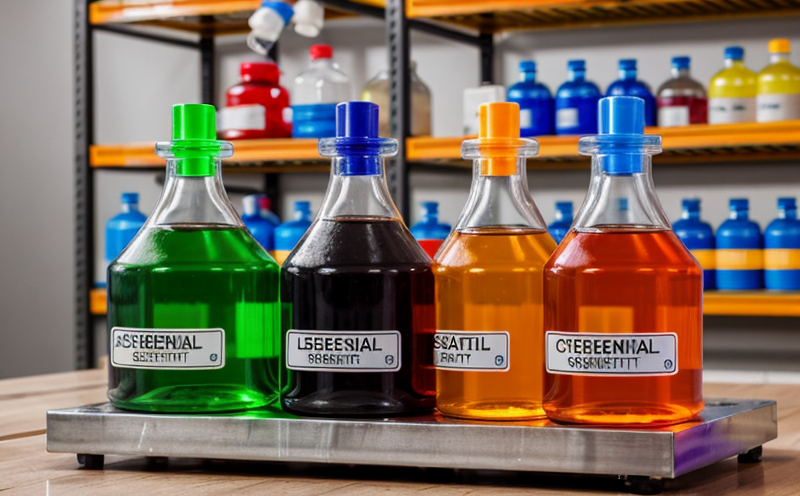EN 71-3 Heavy Metal Migration Testing in Toys
The European Standard EN 71-3:2019 specifies requirements and test methods for determining the migration of certain elements from materials used in toys. This standard is crucial for ensuring that children's toys are safe, particularly focusing on heavy metals which can pose a significant health risk if ingested or absorbed through prolonged contact.
Heavy metals such as lead (Pb), cadmium (Cd), mercury (Hg), and chromium (Cr) are of particular concern because they can cause serious health effects including neurological damage, organ toxicity, and even cancer. The test method described in EN 71-3 aims to quantify the amount of these elements that migrate from a toy material under specific conditions.
The testing process involves placing samples into an artificial sweat solution for a set duration (typically 24 hours) at specified temperatures. After this incubation period, the sample is rinsed and dried before analysis by atomic absorption spectrophotometry or equivalent analytical technique to measure the concentration of heavy metals in the leachate.
Compliance with EN 71-3 ensures that toys meet stringent safety requirements set forth by European Union directives. This standard applies not only to finished products but also raw materials, components, and parts used in manufacturing.
For accurate and reliable testing, it is essential to follow proper sample preparation techniques. Samples should be cut into small pieces if necessary to ensure uniformity across all samples being tested simultaneously. It’s important that each piece of the sample has a surface area large enough for complete exposure during immersion but not so large as to cause significant variations in results.
The equipment required includes an incubation chamber capable of maintaining precise temperature and humidity conditions, analytical balances accurate to at least 0.1 mg, and appropriate reagents for preparing the artificial sweat solution according to the specified composition outlined in the standard.
| Parameter | Description |
|---|---|
| Incubation Time | 24 hours at 37°C ±1°C |
| Artificial Sweat Composition | Potassium chloride (KCl) 0.5 g/L, Sodium chloride (NaCl) 9 g/L, Potassium carbonate (K2CO3) 5.86 g/L |
The results of this test are critical for manufacturers to ensure their products comply with EU regulations and pass inspections conducted by authorities like the European Commission. A limit value is established for each heavy metal based on its potential risk level, which serves as a threshold above which further action may be necessary.
Failure to meet these limits could result in recalls or bans of non-compliant items from distribution channels within EU member states. Therefore, regular testing throughout the product lifecycle is advisable to maintain compliance and protect brand reputation.
In conclusion, conducting EN 71-3 heavy metal migration tests helps manufacturers produce safer toys that comply with international safety standards while protecting children's health and well-being.
Industry Applications
The application of EN 71-3 testing is broad but primarily focused on the toy industry. Toys are designed for use by young children, making them particularly vulnerable to exposure to harmful substances. Ensuring that toys do not contain excessive levels of heavy metals is paramount in safeguarding child health and development.
| Material Type | Potential Hazard |
|---|---|
| PVC plastics used in toy manufacturing | Risk of lead contamination leading to neurotoxic effects |
| Paints and coatings applied to toys | Chances of cadmium leaching causing kidney damage |
| Metal components like buttons or fasteners | Potential for chromium compounds contributing to carcinogenic risks |
Beyond toy production, this testing can extend to related industries such as children's furniture makers who incorporate similar materials into their products. Additionally, suppliers of raw materials used in these sectors must also adhere to these standards to ensure final product compliance.
By implementing rigorous quality control measures including regular EN 71-3 testing, companies can demonstrate their commitment to consumer safety and regulatory adherence. This not only protects consumers but also enhances brand image and fosters trust among parents who prioritize the safety of products for their children.
Eurolab Advantages
At Eurolab, we offer comprehensive EN 71-3 heavy metal migration testing services tailored to meet your specific needs. Our team comprises experienced professionals equipped with state-of-the-art facilities and cutting-edge technology to deliver accurate and reliable results.
We pride ourselves on providing rapid turnaround times without compromising quality. With our extensive network of laboratories across Europe, we can cater to clients located anywhere within the EU or beyond. This ensures that businesses operating internationally have access to consistent testing standards regardless of geographical location.
Our services extend beyond just performing tests; we also offer detailed reports and recommendations based on findings. These insights help manufacturers identify areas where improvements are needed and implement corrective actions promptly. By leveraging our expertise, clients can avoid costly mistakes and maintain compliance with all relevant regulations.
To further enhance efficiency, Eurolab offers sample preparation services as part of its comprehensive package. This includes cutting samples into appropriate sizes and performing initial rinses before submission for testing. Our team ensures that every step in the process adheres strictly to EN 71-3 specifications, ensuring accurate measurements and consistent results.
Moreover, our commitment extends to training sessions conducted either on-site or virtually for personnel involved in production processes. These workshops cover best practices from raw material selection through final product release, emphasizing the importance of adhering to international standards like EN 71-3 throughout each stage.
Choose Eurolab for your EN 71-3 heavy metal migration testing needs and experience the difference that expertly conducted tests make in ensuring product safety and regulatory compliance.





